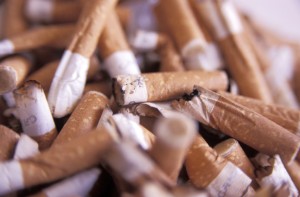There is evidence that approximately 90 percent of alcoholics are likely to experience at least one relapse over the 4-year period following treatment. Despite some promising leads, no controlled studies definitively have shown any single or combined intervention that prevents relapse in a fairly predictable manner. Thus, relapse as a central issue of alcoholism treatment warrants further study.
There is evidence that approximately 90 percent of alcoholics are likely to experience at least one relapse over the 4-year period following treatment. Despite some promising leads, no controlled studies definitively have shown any single or combined intervention that prevents relapse in a fairly predictable manner. Thus, relapse as a central issue of alcoholism treatment warrants further study.
Similar relapse rates for alcohol, nicotine, and heroin addiction suggest that the relapse mechanism for many addictive disorders may share common biochemical, behavioral, or cognitive components. Thus, integrating relapse data for different addictive disorders may provide new perspectives for relapse prevention. 
However, scientists may have uncovered a way to prevent alcohol relapse by deactivating a neural pathway linked to memories of drinking that is responsible for cravings. Researchers at the Ernest Gallo Clinic and Research Center at UC San Francisco were able to prevent alcohol-addicted rats from seeking and drinking alcohol, by “turning off” triggers in the animals’ brains. “One of the main causes of relapse is craving, triggered by the memory by certain cues—like going into a bar, or the smell or tastdisore of alcohol,” says lead author Segev Barak. “We learned that when rats were exposed to the smell or taste of alcohol, there was a small window of opportunity to target the area of the brain that reconsolidates the memory of the craving for alcohol and to weaken or even erase the memory, and thus the craving.”
Researchers put the alcohol-addicted rats through a 10-day abstinence period, before exposing them to the smell and taste of alcohol. When they administered the drug rapamycin on the brain pathway known as mTORC1 immediately after the smell or taste cue, the rat did not return to alcohol. Relapse remains a major obstacle in substance abuse treatment, say researchers, and a reported 70 to 80% of patients relapse in the first several years after rehab or treatment. The authors say more research is needed, but the study shows promise for preventing relapse in human addicts. “It is really thrilling that we were able to completely erase the memory of alcohol and prevent relapse in these animals,” says Barak, “This could be a revolution in treatment approaches for addiction, in terms of erasing unwanted memories and thereby manipulating the brain triggers that are so problematic for people with addictions.”



2 Comments
Its meaningful and somehow sharing this to readers like me, would make me wish to surf the internet to have the ability to get a whole lot more marvelous suggestions.Seriously impressed! Everything is very open and exceptionally clear explanation of problems. It is made up of really specifics. Your web-site is particularly helpful. Thanks for sharing. Looking forward to a lot more…
This was truly a fantastic post! I honestly learned a lot from it! It so sad to see someone relapse but to know that their is a cure is absolutely wonderful!